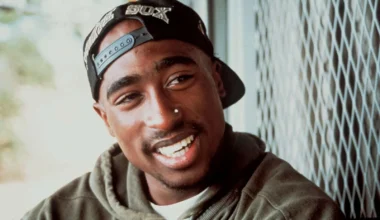There are moments in life when words fail—when trauma strikes so deeply that describing it becomes an impossible task. For some, that moment is a passing storm; for others, it becomes a defining chapter. In one of the most trying periods imaginable, a public figure—revered and respected for decades—found himself at the center of a nightmare he never could have foreseen.
“It was surreal,” he recalls. “Like it wasn’t even happening.” What began as a devastating accusation rapidly spiraled into a storm of public scrutiny, legal uncertainties, and emotional despair. And yet, through the chaos, he chose silence—not as a strategy, but as a necessity. “I didn’t plan to be dignified. I was just trying to survive.”
While many might crumble, he leaned on something deeper—his faith. In the darkest hours of the night, when fear and doubt loomed the largest, it was his relationship with God that provided strength. “I never felt abandoned. In fact, I felt closer to Him than ever before,” he shared. That connection not only grounded him but allowed him to do something remarkable just days into the ordeal: forgive his accuser. “I couldn’t carry hate. I wouldn’t survive it.”
Forgiveness, as he described, was the turning point—not for the world, but for his soul. It lifted a burden that vengeance only deepens. It made space for peace to begin taking root. Still, scars remain. “Peace of mind is something we all take for granted,” he admits, “until it’s gone.”
Support, too, came from unexpected corners. While some friends initially hesitated, unsure whether he wanted solitude, he found strength in their presence. “No, I didn’t want to be alone,” he emphasized. And the public, the fans—those who had admired him for nearly six decades—stood unwavering. “My lawyers told me they’d never seen 100% public support for someone. That meant everything.”
Yet the experience hasn’t left him unchanged. Once warm and naturally affectionate with fans—especially with children brought forward for photographs—he now feels a cautious hesitation. Not bitterness, not fear, but awareness. “I’m still figuring out how to deal with that part,” he reflects.
Looking ahead, he’s resolved not only to reclaim his peace but also to advocate for balance in justice. “Accusations must be taken seriously,” he says, “but so must the presumption of innocence. No one should suffer collateral damage simply because they’re accused.”
He’s not naive about the road ahead. Legal matters still linger. Memories still ache. But hope, healing, and faith guide his steps. “I may never fully get over it,” he says, “but I’m definitely getting past it.”
In a world often quick to judge, his journey is a profound reminder: resilience is not born from perfection, but from grace under fire. And when the worst has passed, the future—however scarred—can still shine with promise.






